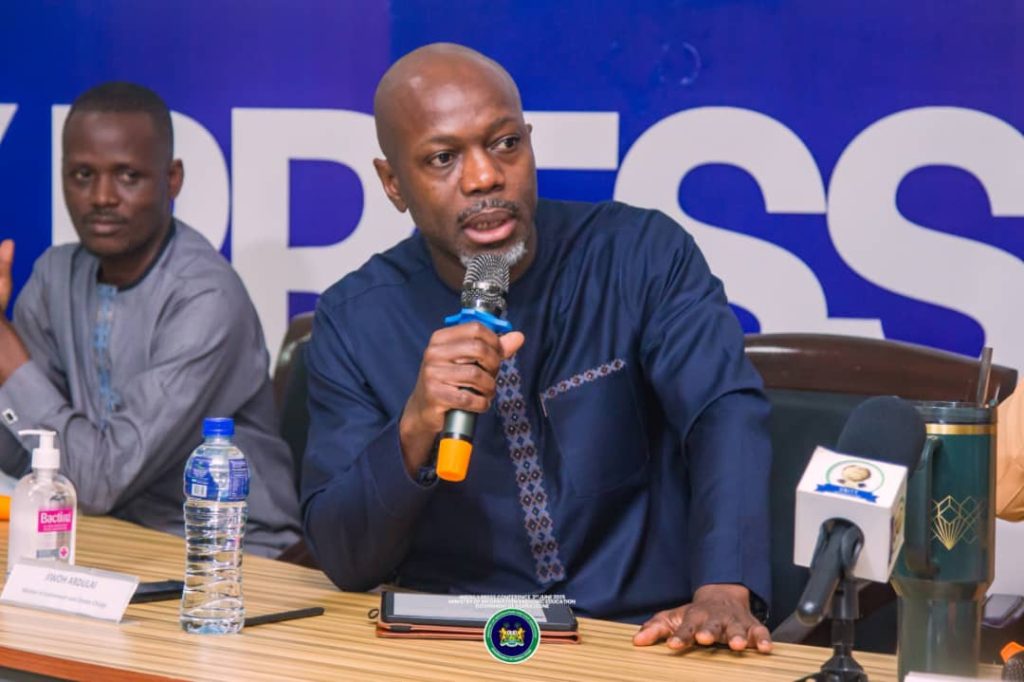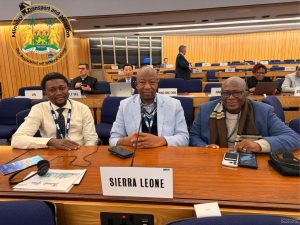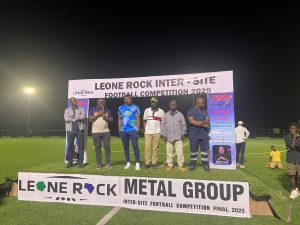Jiwoh Abdulai Warns Against Encroachment in Protected Areas

By Abdul Rahman Bah
Minister of Environment and Climate Change Jiwoh Abdulai issued a firm warning during the government’s weekly press briefing on June 3, 2025, about the growing threat of illegal encroachments in protected environmental zones. He specifically highlighted the Tacugama Chimpanzee Sanctuary and the Western Area Peninsula National Park as areas under increasing pressure from unauthorized construction and land occupation. Abdulai emphasized that these protected areas are not only home to endangered species, including the critically important chimpanzee population, but also serve as vital ecological zones that maintain the balance between human development and nature. He condemned any form of land grabbing or illegal activity within these areas and stressed that such actions violate environmental regulations and place both wildlife and surrounding human communities in serious jeopardy. The Ministry, he declared, would intensify surveillance, enforcement, and collaboration with local stakeholders to stop further encroachment and protect these national treasures for future generations.
In a sobering address, Abdulai drew a direct connection between deforestation in the Western Area Peninsula National Park and the growing threat to water security in Freetown. He described the park as the city’s most critical water catchment area and warned that ongoing tree felling, forest clearing, and unauthorized settlements were having devastating impacts on the natural systems that regulate the water supply. According to the minister, these harmful activities disrupt the watershed, leading to soil erosion, decreased water quality, and diminished rainfall retention factors that collectively endanger Freetown’s ability to meet the water needs of its growing population. Abdulai urged the public to recognize the long-term consequences of short-term land use and called for immediate cooperation in halting deforestation. He reiterated that preserving forested areas was not just an environmental necessity but a public health and urban resilience imperative.
Providing a detailed update on the Sierra Leone Coastal Resilience Project (SLCRP), Abdulai explained the government’s strategic plan to address the escalating risks posed by climate change in coastal communities. The SLCRP, supported by both national efforts and international partnerships, is designed to reduce the vulnerability of coastal regions to sea-level rise, tidal flooding, and severe erosion. The minister outlined that the project would introduce a series of locally adapted and sustainable infrastructure and land-use practices aimed at strengthening natural defences while supporting the livelihoods of people living near the coast. He emphasized that the project would prioritize community participation and environmental stewardship, ensuring that solutions are not only technically sound but also socially inclusive. Through the SLCRP, the government aims to transform at-risk coastal zones into models of climate resilience and adaptive development.
Abdulai concluded his remarks by emphasizing the central role of communities in driving meaningful climate action. He stated that while the government will continue to lead in policy formulation and enforcement, long-term success depends on the active participation of citizens. From urban residents to rural farmers, every Sierra Leonean, he said, has a role to play in conserving natural resources and adapting to climate threats. The minister highlighted the importance of civic education, grassroots innovation, and traditional knowledge in crafting sustainable solutions. He assured the public that the Ministry of Environment and Climate Change will deepen its engagement with civil society organizations, youth groups, and local leaders to build a broad-based movement for climate resilience. Abdulai ended with a strong appeal for collective responsibility, reminding the nation that environmental protection is not a choice but a shared obligation essential for survival and progress.





